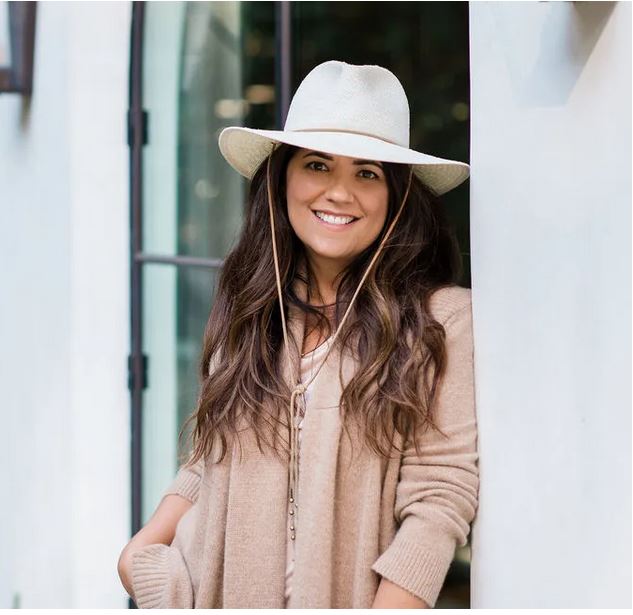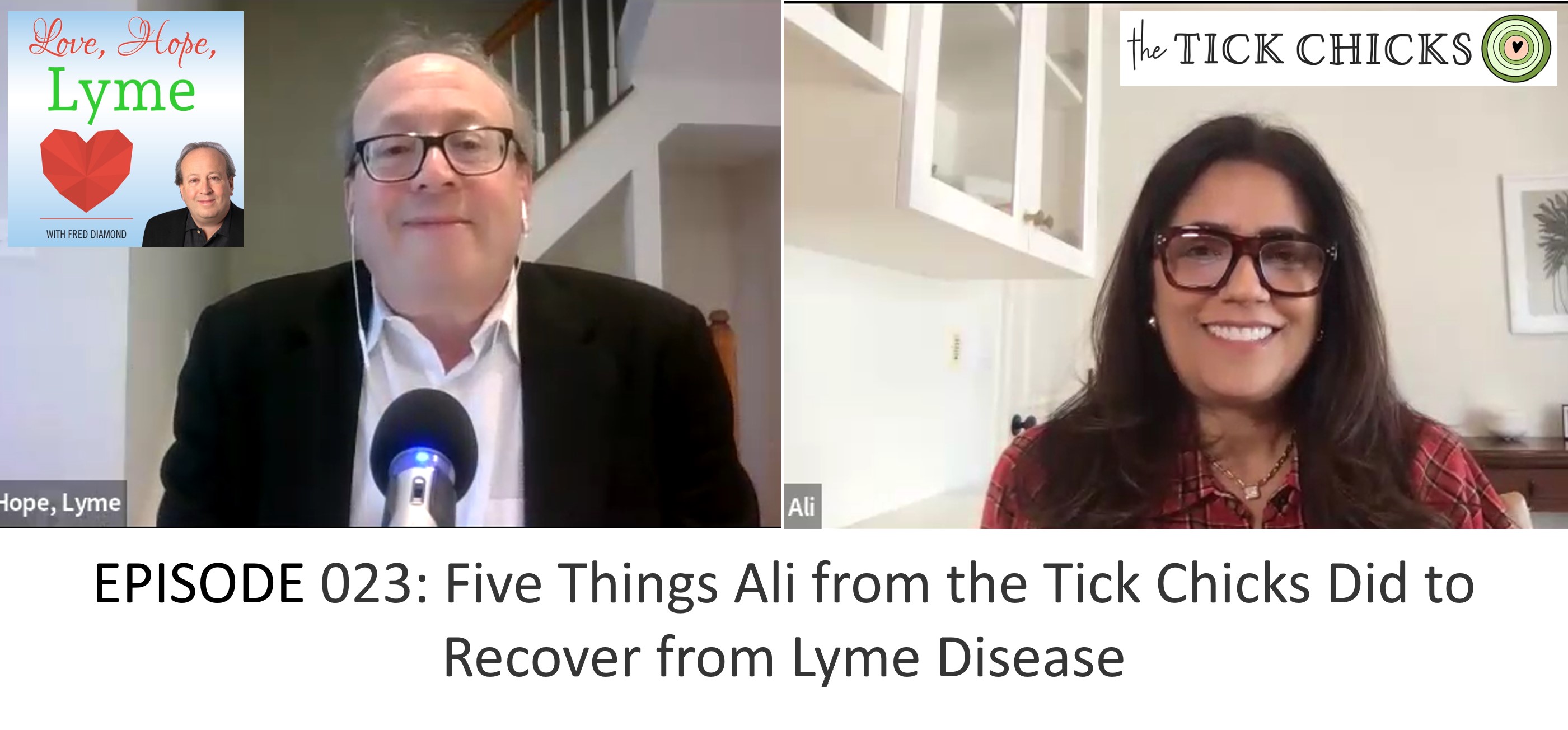PODCAST: 5 things this “Tick Chick” did to recover from Lyme

By Fred Diamond
When I was researching my book “Love, Hope, Lyme: What Family Members, Partners, and Friends Who Love a Chronic Lyme Survivor Need to Know,” I was surprised to find there were so many people who recovered from Lyme that wanted to help others in the community.
Many attributed getting to a better place to supportive friends and family, helpful people in the medical community, and community members who tirelessly offered counsel and advice. One community leader I met was Ali from the Tick Chicks.
I discovered her Lyme Time Podcast when I was trying to learn more. I got to know her and asked her on my “Love, Hope, Lyme Podcast” how she was able to recover from Lyme.
What led to her recovery
On the podcast, Ali discusses:
- Her antibiotic trial
- Surrendering to not chasing the bug and numbers
- Opening her mind to alternative healing
- Symptom relief: supplements, extreme clean eating, rest, faith, baby steps (stretching, walking), eliminating humidity and elevation.
- Brain retraining, breath work, vagus nerve health, a vision of total cellular health.
As with many Lyme survivors, it took over three years for her Lyme diagnosis to happen.
Ali said, “My doctor said now that we know it’s Lyme, it’s probably not the first thing that you’ve had attack your immune system on a deep level, and it probably won’t be the last. He said that for many of his patients, Lyme disease is somewhere in the middle, and when the Lyme is triggered, that’s their starting point.”
“I was astonished that Lyme wasn’t one of the first things they tested for. I was astonished that they didn’t ask where I had been traveling prior to all these symptoms coming about. I was astonished that my own neurologist blew it off. I was just in shock,” she said.
“I remember telling my doctor that I wondered if it could be Lyme disease, but every time I went online to research it, all it talked about was the ineffectiveness of Lyme testing.”
Like many Lyme survivors, Ali quickly learned that there is no easy and quick path to healing. She then decided to treat her symptoms, which she said made her recovery more manageable.
“I’m a doer. I was very active before this whole bug bite thing happened, and so it was frustrating me. I had to adjust my lifestyle. When I surrendered from trying to solve everything, there was beauty in the ability to see healing going on,” she said.
Why symptom control made the difference
When she shifted her personal care to symptom control, she found the process of healing to be more manageable.
“There are a lot of intolerances that you get with Lyme disease, such as altitude intolerance, heat intolerance, humidity intolerance. I developed all kinds of joint pain, and I was suddenly very sensitive to chemical smells. I had to swap out all my cleaning supplies for household cleansers that were organic. Same with my skincare. I was reacting to SPF even in my makeup. I was going through this huge mast cell activation. That led me to eliminating certain things,” she said.
Diet was something she had to completely rethink.
She advised, “Lyme survivors need to eat very, very cleanly and stop eating so much. Eating very simple whole foods and proteins will take away the mass cell issue that’s going on in your body.”
“Also, your vitamin Bs are key to Lyme disease recovery, especially if you’re dealing with neurological Lyme. Your body may not be processing it in pill form, so you may have to take it intravenously. When I was really at my worst, I would do one IV a week, and then I would do one every two weeks, and then I would do one a month. I just do them as needed now,” she said.
She said she eliminated hot tubs and massages and focused on baby steps in terms of movement, such as going for very short walks.
“Infrared sauna helped me. Sometimes it can also create a Herxheimer reaction, but you will be able to learn your tolerances with that and eventually go full throttle with it daily,” she said.
How brain retraining helped
I recently covered cognitive and neurological issues with Lyme on the Love, Hope, Lyme podcast. We discussed how brain retraining helped her recover.
Ali said, “When you have Lyme disease, your symptoms may start getting better. You may start feeling a little bit of relief, but what happens is your body is still in fight or flight mode, and it can be very, very detrimental to your healing process. You walk into a room and you’re completely nervous that if you get sick from any one of these people, it’s going to start your symptoms all over again. You’re nervous to be outside in the way that you used to enjoy the outdoors, for example.”
She said brain retraining taps into your vagus nerve and retrains your brain and your body to accept your surroundings, be relaxed again, and get into a state of appreciation and gratitude.
“One of my favorite mantras is ‘I am safe,” she said. “Going through Lyme disease makes you question everything, and it oftentimes will put a person into that next stage of paranoia and panic about situations.”
“I recommend it to anybody who feels like they’re hitting roadblocks, even if you’re doing everything right. Give yourself a vision of your cellular health. Give yourself a chance to see the world in a positive way again, and put mind over matter, and to just be able to turn that brain and those thoughts around to really remembering that you do have a beautiful life and you have a lot to give to this planet, and you will recover,” she concluded.
Click here to listen to all episodes of the Love, Hope, Lyme Podcast or on YouTube.
Fred Diamond is based in Fairfax, Virginia and can be contacted via Facebook. His popular book, “Love, Hope, Lyme: What Family Members, Partners, and Friends Who Love a Chronic Lyme Survivor Need to Know” is available on Amazon. The e-version of the book is always free to Lyme survivors. PM Fred on Facebook for your copy.





















We invite you to comment on our Facebook page.
Visit LymeDisease.org Facebook Page